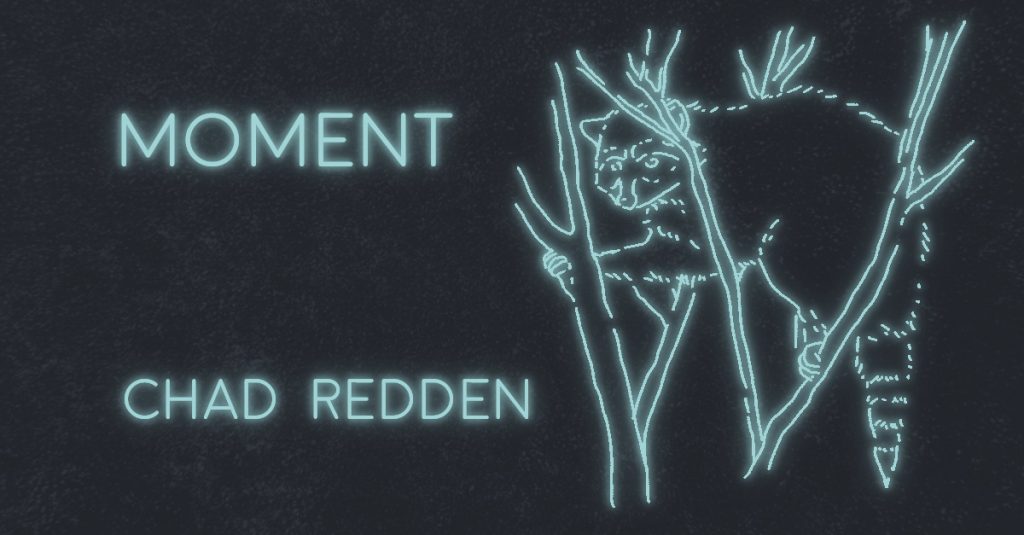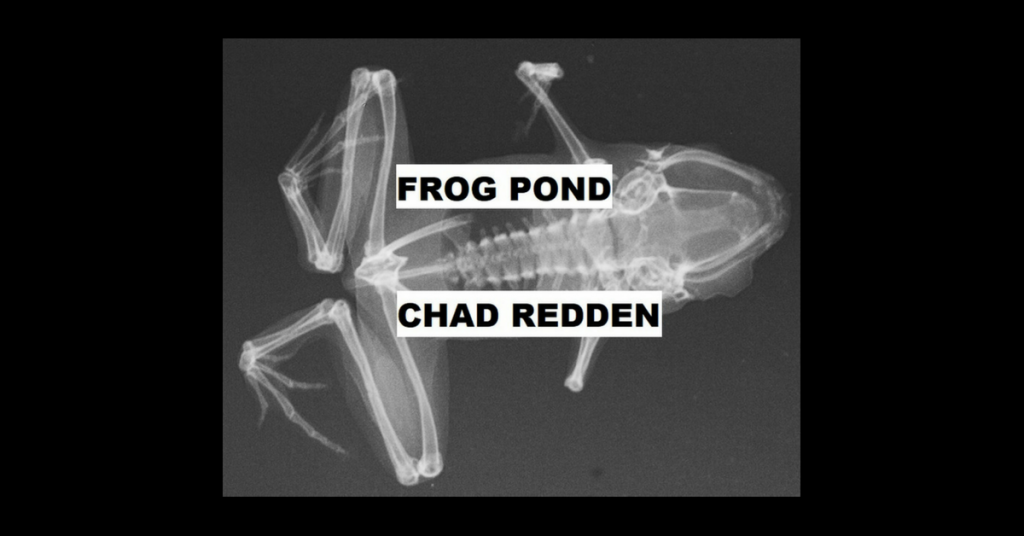
MOMENT by Chad Redden
A little raccoon, more sponsor than mascot, came with the moment, came down the tree. We waited below the tree, Ryan and me. Waited for the racoon that came with the moment, but it was a tall tree, it took some time. For the racoon. For the tree to grow that tall, how many years I cannot speculate. I cannot look at a tree and say how much time it took for a tree to grow. It took some time for the racoon to reach the ground. After a while Ryan had to leave, before the racoon could reach the…

